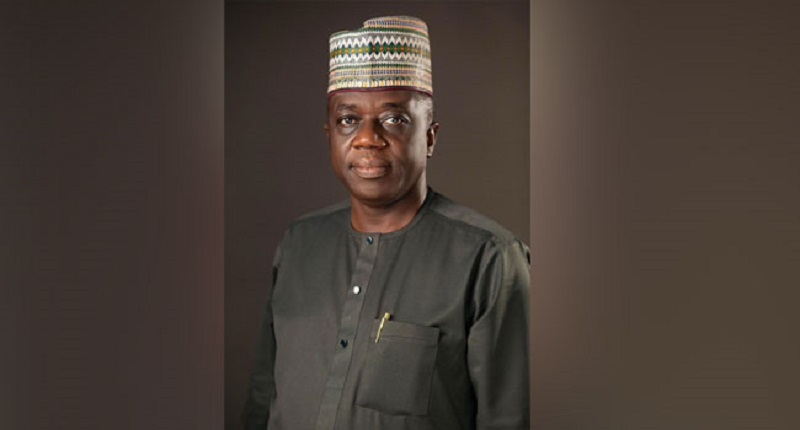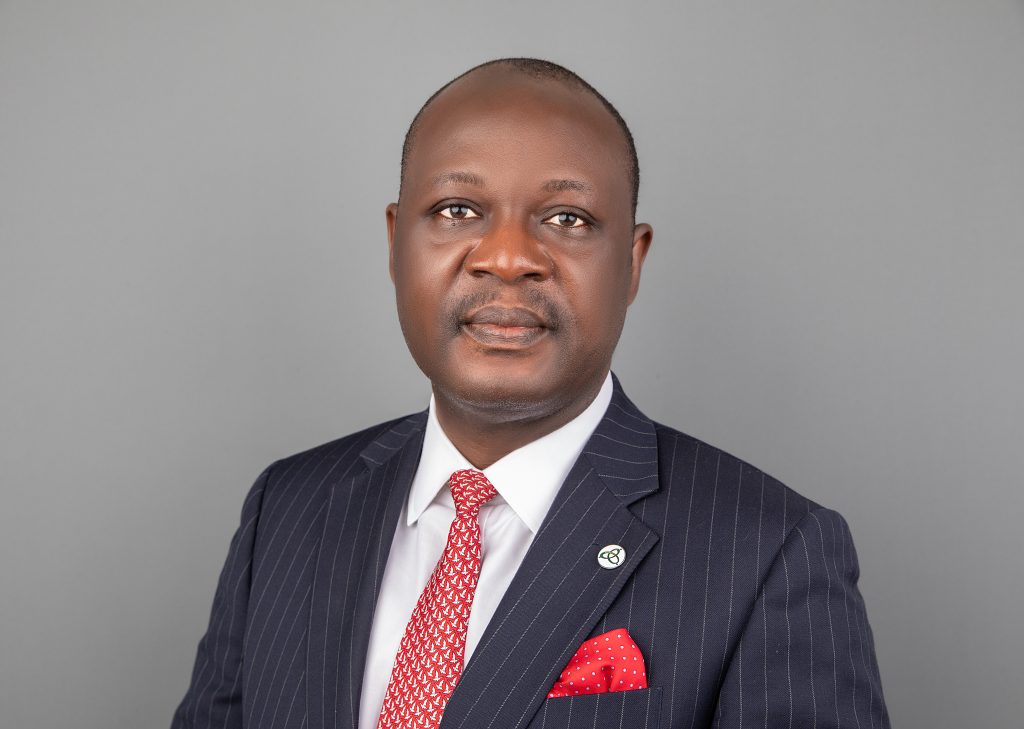Jobs/Appointments
Businesses Need to be Concerned About Employee Privacy as Much as Consumer Privacy

By Andrew Bourne
Of late, there have been a lot of headlines around major technology players putting customer privacy first and making data privacy one of their core values.
The business landscape is hurriedly re-orienting itself to provide the digital consumer with a safe space where their data is protected round the clock.
Meanwhile, there’s another important stakeholder whose privacy equally matters. Employees have just as much right to privacy in the workplace.
Recent trends like remote working and hybrid models have heightened the importance of employee privacy
Forced to switch overnight to remote work, organisations turned to digital collaboration and productivity tools to enable their workforce to continue their day-to-day operations. With little to no time to vet third-party vendors, organisations had to purchase and implement technology quickly or use free applications without weighing vulnerabilities.
But this hasty transition was not without its risks, especially for employees. For instance, the steep rise in user base for video conferencing tools caught the hackers’ attention and live meetings were invaded in some cases.
Moreover, audio/video calls while working from home means that varied details of employees’ personal lives are archived in vendors’ data records, at risk of being compromised unless the vendor has a stringent data protection program.
Many companies introducing remote monitoring software when their employees began working from home also raised a lot of privacy concerns.
According to Gartner, more than one out of four companies purchased technology during the pandemic to passively track and monitor their employees.
Another area where the delicate balance between privacy and necessity worried employees was the interim health data collection (like vaccination proof, medical records, household surveys, status updates, etc.) carried out to ensure a safe return to the office.
Workers want their employers to be transparent and upfront with their data practices
Employee data collection is not new. Employers have been long studying workplace patterns, engagement survey responses, and team dynamics to foster a productive work environment.
Employees are usually willing to work together with their employer on this, provided the data gathered directly serves an internal business goal as well as the latter inform beforehand about what the data will be used for, how it will be stored, and who will have access to it. The same goes for employee monitoring. A 2018 Gartner study reported that more than 50% of the respondents were comfortable with monitoring on grounds of valid reasons from the employer.
To put things in perspective, employees willingly trust employers to keep their data safe and use it responsibly. But this trust is broken when employers keep employees in the dark about what purpose their data serves or cross a line with tracking by going to lengths like uninformed surveillance or camera monitoring. The moment employees feel their employer is invading their privacy, it will reflect in the organisation’s attrition rate.
Shaky legal ground
Businesses may also be placing themselves on a shaky legal ground when it comes to employee privacy. In terms of the Protection of Personal Information Act (POPIA), employers have to make employees aware that their productivity and performance is being monitored and should provide reasons for doing so. The Regulation of Interception of Communications and Provision of Communication-Related Information Act (RICA), meanwhile, restricts the interception of communication except under very specific circumstances.
Businesses may also be placing themselves on a shaky legal ground when it comes to employee privacy. In terms of the Nigeria Data Protection Regulation (NDPR) employers are required to display a simple and conspicuous policy regarding personal information data. To avoid any legal complications, employers should obtain employees’ consent as well as buy-in before implementing monitoring tools.
Rather than trying to evade these legal minefields, employers should look to build trust between themselves and employees, and build a safe and compliant environment where privacy is assured.
Commitment from the top
Ultimately, employee privacy is as much a leadership prerogative as anything else. It requires organisational commitment on an ongoing basis. Employee data, like customer data, is of critical importance and warrants the same level of protective measures like robust encryption both at rest and in transit, clear data handling statements, and informed consent. In the case of third-party services, the safe choice for businesses is to work with vendors who espouse an ethical approach to data privacy protection, are compliant with local regulations, and would never monetize data.
When privacy is assured, the trust relationship grows stronger. You build more loyal employees who are willing to go the extra mile for customers, ultimately resulting in a positive impact on your bottom line. As such, employee privacy shouldn’t be treated as a feature but as a non-negotiable given.
Andrew Bourne is the Regional Manager – MEA, Zoho Corporation
Jobs/Appointments
Tinubu Appoints Ogunjumi Acting Accountant General as Madein Retires

By Adedapo Adesanya
President Bola Tinubu has appointed Mr Shamseldeen Babatunde Ogunjimi as the Acting Accountant General of the Federation (AGF).
This was contained in a statement on Tuesday by presidential spokesman, Mr Bayo Onanuga.
“His appointment is effective immediately following the pre-retirement leave of the incumbent AGF, Mrs Oluwatoyin Sakirat Madein,” a part of the statement read.
“In announcing Madein’s successor, President Tinubu ensures a seamless transition in the administration of Nigeria’s treasury and consolidates the implementation of the present administration’s treasury policy reforms,” the statement added.
Mr Onanuga said Mr Ogunjimi brings over 30 years of extensive experience in financial management across the public and private sectors.
He described the appointee as a career civil servant and the most senior director in the Office of the Accountant General of the Federation (OAGF),
“He has held significant positions, including Director of Funds at the OAGF and Director of Finance and Accounts at the Ministry of Foreign Affairs.
“A chartered accountant, certified fraud examiner, chartered stockbroker, and chartered security and investment specialist, Mr Ogunjimi’s academic qualifications include a Bachelor of Science (BSc) in Accountancy and a Master’s in Finance and Accounting,” the statement added.
According to Mr Onanuga, President Tinubu expressed his confidence in his appointment, saying, “The Office of the Accountant General of the Federation is pivotal to our nation’s treasury management operations. Mr Ogunjimi’s wealth of experience and notable competence will ensure the continued effectiveness of this vital institution as we advance our economic reform agenda.”
President Tinubu also commended the outgoing Accountant General of the Federation, Mrs Madein, for her dedication and selfless service to the nation.
After reaching the civil service’s statutory retirement age, Mrs Madein is retiring effective March 7, 2025.
Jobs/Appointments
CBN Denies Forceful Mass Retirement Amid Restructuring

By Adedapo Adesanya
The Central Bank of Nigeria (CBN) has dismissed claims of forced mass retirement as part of efforts by Governor Yemi Cardoso to restructure the workforce of the organisation.
In a statement released on Wednesday, the Acting Director of Corporate Communications, Mrs Hakama Sidi Ali, clarified that its Early Exit Package (EEP) is entirely voluntary and without any negative repercussions for eligible staff.
According to the statement, the decision to implement the exercise was the outcome of extensive consultations with the bank’s Joint Consultative Council (JCC), a body representing staff interests.
Mrs Sidi Ali explained that the EEP, a longstanding policy previously accorded to the executive cadre, has now been made available to eligible staff at all levels.
“For some time, staff representatives through the JCC had called on management to approve the early exit package for all cadres. Following these discussions, management decided to meet this popular demand,” she said in the statement.
Addressing concerns about potential repercussions for staff who decline the package, Mrs Sidi Ali reaffirmed management’s commitment to supporting employees’ professional growth and well-being, describing the concerns as unfounded.
She further emphasized that the initiative is an internal corporate matter designed to promote career development for staff.
According to wide spread reports, there have been plans to retire approximately 1,000 employees by the end of the year with a payoff estimated to cost over N50 billion.
The mass retirement, which was announced in a circular issued three weeks ago, mandates affected employees to apply for the Early Exit Package (EEP).
The statement allegedly warned employees with less than one year of service or unconfirmed appointments to refrain from applying for the program, noting that the application would remain open until December 7, with an effective exit date of December 31, 2024.
It was reported that the entire EEP was valued at N50 billion.
Jobs/Appointments
CBN Okays Appointment of Benson Ogundeji as Greenwich Merchant Bank CEO

By Modupe Gbadeyanka
The Central Bank of Nigeria (CBN) has approved the appointment of Mr Benson Ogundeji as the chief executive of Greenwich Merchant Bank Limited.
The board of the financial institution for businesses had picked Mr Ogundeji as its substantive CEO but awaited the authorisation of the banking sector regulator.
He brings over three decades of extensive banking experience to this role as a seasoned financial services professional, who previously served as Executive Director at Greenwich Merchant Bank from July 2020, where he played a pivotal role in the bank’s successful transition from the legacy Greenwich Trust Limited to a merchant bank.
In this capacity, he provided oversight for Corporate Banking, Treasury and Global Markets.
Throughout his career, Mr Ogundeji has demonstrated exceptional expertise in business development and operational excellence.
Before joining the firm, he held various senior leadership roles at prominent financial institutions, including Ecobank Nigeria, GTBank, and other notable banks, where he consistently displayed exceptional leadership skills.
His appointment comes at a crucial time as Greenwich Merchant Bank commences the next phase of its growth plans. Having related closely with the new CEO, as an Executive Director and acting CEO in the last four years, the board has expressed confidence about his ability to lead the bank in delivering our strategic goals.
“The board is pleased to announce the appointment of Benson Ogundeji as our Managing Director/Chief Executive Officer,” the chairman of Greenwich Merchant Bank, Mr Kayode Falowo, stated.
-

 Feature/OPED5 years ago
Feature/OPED5 years agoDavos was Different this year
-
Travel/Tourism8 years ago
Lagos Seals Western Lodge Hotel In Ikorodu
-

 Showbiz2 years ago
Showbiz2 years agoEstranged Lover Releases Videos of Empress Njamah Bathing
-

 Banking6 years ago
Banking6 years agoSort Codes of GTBank Branches in Nigeria
-

 Economy2 years ago
Economy2 years agoSubsidy Removal: CNG at N130 Per Litre Cheaper Than Petrol—IPMAN
-

 Banking2 years ago
Banking2 years agoFirst Bank Announces Planned Downtime
-

 Sports2 years ago
Sports2 years agoHighest Paid Nigerian Footballer – How Much Do Nigerian Footballers Earn
-

 Technology4 years ago
Technology4 years agoHow To Link Your MTN, Airtel, Glo, 9mobile Lines to NIN










